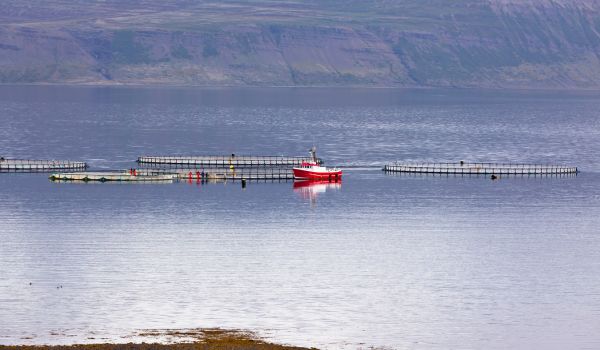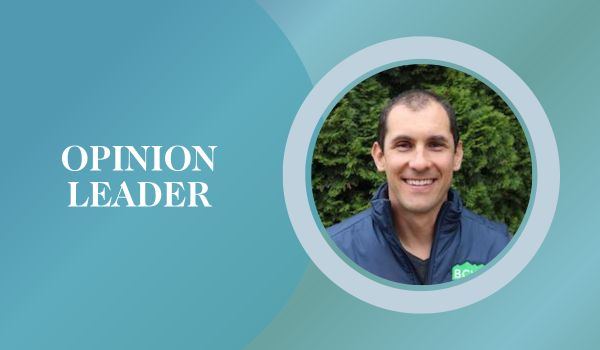Science advice need not be taken, but it should be shown
 Scientists are eager to share any and all knowledge, while governments prefer to keep a sure hand on information that abides by policy. This fundamental tension continues to challenge the way researchers provide advice to the country’s leadership.
Scientists are eager to share any and all knowledge, while governments prefer to keep a sure hand on information that abides by policy. This fundamental tension continues to challenge the way researchers provide advice to the country’s leadership.
Some 25 years ago, Dalhousie University biologist Jeffrey Hutchings pondered this question, with respect to the moratorium the federal government had imposed on the East Coast fisheries in 1992. At the time he regarded the lack of a politically independent research body as one of the key problems facing the Department of Fisheries and Oceans (DFO), which he argued was acting on a mandate to conserve natural resources without the advantage of objective scientific evidence.
Hutchings became more optimistic with the change of government in 2015, which subsequently provided a major budget boost to DFO, earmarked for no fewer than 135 new science positions in the department.
“The Department of Fisheries and Oceans’ announcement is the strongest indication to date that the Liberals intend to strengthen the evidential basis of science advice, and ultimately the societal benefits accruing from this advice,” he wrote. “The expected hiring wave will create a generational shift, reinvigorating a department left professionally despondent by years of repressive communications control and seemingly indiscriminate program cuts."
By last year, however, Hutchings and his colleagues across Canada and the United States were again calling for an independent agency, which they still regard as an integral aspect of ensuring DFO can develop the most environmentally and economically responsible policy. In a recently published paper for the Canadian Journal of Fisheries and Aquatic Sciences (CJFAS), they reviewed how DFO allows vested interests with political or financial agendas to compromise recommendations from the scientific community.
“Elected officials and other decision-makers must often balance multiple sets of competing demands, including those of an economic, social, political, or legal nature,” they acknowledged. “In the context of these multiple demands on decision-makers, however, processes that produce the best possible science advice can ensure that scientific considerations inform decisions as effectively as possible.”
Unfortunately, as the authors explain, DFO’s bureaucratic approach has often mitigated against such advice — to the point of suppressing it. More specifically, they point to the function of the Canadian Science Advisory Secretariat (CSAS), the department’s in-house body for scientific input.
“While the CSAS peer-review process can function well at the best of times, it is on highly contentious topics that science advice most needs to stand up to scrutiny, and where a lack of the hallmarks of robust science advice in the CSAS process has become most apparent,” they stated. “The issues arise before any scientific compilation by DFO staff or peer review begins, as senior managers within DFO have a hand both in setting the specific questions to be asked—or not asked—and in determining how those questions are answered.”
Tailoring queries to suit particular interests can distort the scientific method, perhaps providing answers some stakeholders will prefer, without necessarily providing an accurate assessment of evidence. Earlier this year such shortcomings were highlighted by the paper’s authors and a number of other academic scientists, who submitted an open letter to the Minister of Fisheries, Oceans and the Canadian Coast Guard. Their critique extensively detailed flaws in a DFO report on sea lice infestations in offshore salmon farms, which they regarded as failing to meet “widely accepted scientific standards on numerous fronts, and therefore falls well short of the quality of science advice that you need to make informed decisions on the future of salmon aquaculture in Canada.”
It was only the latest call in a decade-long line of public requests for DFO to publish objective assessments of the threat these parasites — and the commercial facilities where they are concentrated — pose to wild fish populations.
“In addition to suppressing evidence, DFO has silenced its own scientists whose work strays from the Departmental line: that salmon farms do not harm wild salmon,” the CJFAS paper noted, referring to the case of government researcher Kristi Miller-Saunders, who in 2012 was denied permission to publish a report indicating just such harm. “The findings only came to light a decade later, when the federal Information Commissioner compelled DFO to release the report in March 2022.”
Given this history, the authors insisted, only an independent body will be able to ensure scientific advice is completely and publicly represented by DFO. They envision an entity along the lines of the Committee on the Status of Endangered Wildlife in Canada, which serves Environment and Climate Change Canada, and has already demonstrated its ability to provide objective assessments of fisheries-related information.
“A truly independent fisheries-science advisory body would provide the transparency and independent review that is currently lacking within DFO, and which is necessary to ensure that fisheries-science advice in Canada is scientifically defensible and free of political influence and vested interests,” the CJFAS paper concluded. “Ultimately, such a body could provide the advice needed to restore beleaguered fish populations and help to build up the public’s eroded faith in DFO’s ability to manage fisheries without undue political influence.”
R$
| Organizations: | |
| People: | |
| Topics: |
Events For Leaders in
Science, Tech, Innovation, and Policy
Discuss and learn from those in the know at our virtual and in-person events.
See Upcoming Events
You have 0 free articles remaining.
Don't miss out - start your free trial today.
Start your FREE trial Already a member? Log in
By using this website, you agree to our use of cookies. We use cookies to provide you with a great experience and to help our website run effectively in accordance with our Privacy Policy and Terms of Service.





